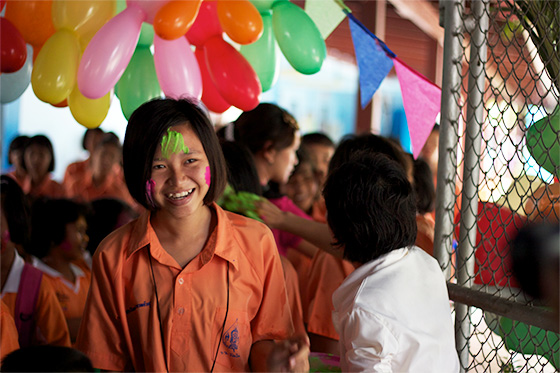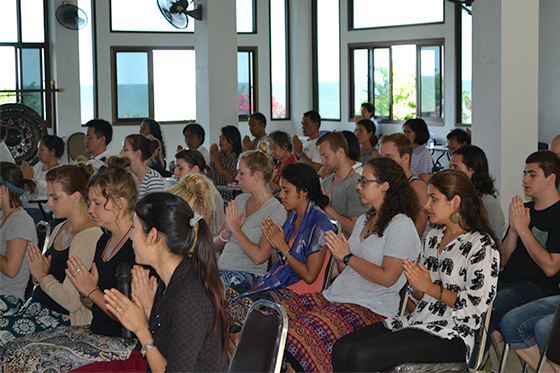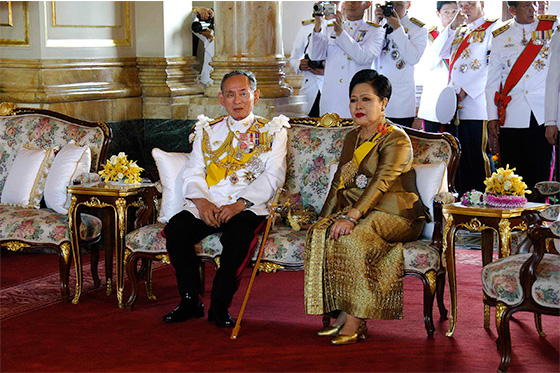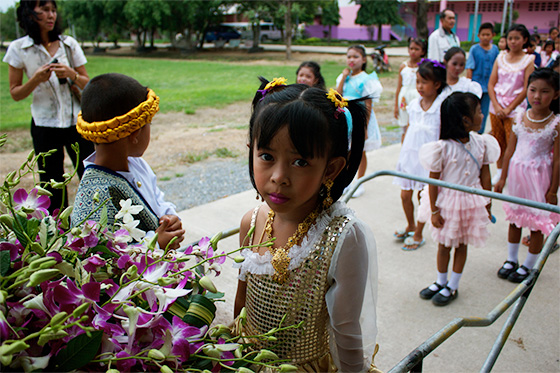There are many gap year opportunities out there that offer foreigners a unique cross-cultural experience. Teaching English in Thailand has to be one of the most culturally stimulating gap year experiences on offer to native English speakers and below we explain why.
Thai culture and the people of Thailand
Thai people are well-known for being relaxed, courteous and hospitable. Buddhism is the dominant religion and is the dominant influence on Thai culture. The concept of “wai”, a way to say hello and greet people without saying anything at all, is used throughout society as an overall method of paying respect to others. The physical action of bowing one’s head to meet the thumbs of two pressed palms, the “wai” is the most significant social practice and its show of respect and in some cases deference says a lot about Thai values and customs.
Westerners are greeted with a traditional handshake and people should be addresses using “Mr”, “Mrs”, or “Miss” followed by their last name. Thais commonly address each other by using the word “Khun”, which is similar to “Mr” or “Mrs”, at formal occasions. The local Thai people tend to be very reserved, but have a good sense of humour. They attach great importance to laughter and smiling. In fact, smiling is a symbol for the Thai way of life, which tends to more relaxed and carefree. Smiling is even common in embarrassing and high-conflict situations. Hence, the well-known term associated with Thailand – The Land of Smiles
Living in the Kingdom
Always show respect for the King and Queen of Thailand, as they are the most respected and revered people of Thailand. It is against the law to make fun of or refer to the Royal Family in less than a favourable light. It is in your best interest to avoid discussions about politics, drugs, health-related issues, religion or the Monarchy. If Thai people invite you to their home or their place of business, be sure to take off your shoes before entering. When sitting on the floor, sit cross-legged, or tuck your legs beside you; do not stretch out your legs in front of you as pointing your feet in someone else’s direction is considered rude. Whilst it is not the obligatory to bring a gift when visting a Thai person, it is well appreciated if you bring gifts like flowers, books or fruit baskets.
Thai Language
The biggest challenge that Westerners face in Thailand is the language barrier between English and Thai. Since there are so many different ethnic groups in Thailand, not everyone speaks the same language. The official language of the country is Thai and the use of English will be predominantly to your workplace. Although it is necessary for all students wishing to attend university to pass an entrance exam in English, this does not mean that the local Thai people will be fluent in English. Thais tend to be at the beginner level of English and their reading and writing skills tend to be more advanced than their speaking and conversation skills. The Thai people are generally shy when it comes to speaking English.
Thai Religion
Buddhism has a major influence on the daily lives of Thai people and is practiced throughout the course of a local Thai person’s life. The Buddhist principle teaches one to follow a middle path, avoiding anything extreme and emphasizes personal well-being above material items or career achievement. Westerners visiting a Buddhist temple or a sacred place should behave in an appropriate manner, as Thai people may consider some actions as sacrilege. As always, the best course of action is to follow the example set by the people of Thailand. Photo by itravelzz
Click here if you would like to teach English in Thailand






0 Comments